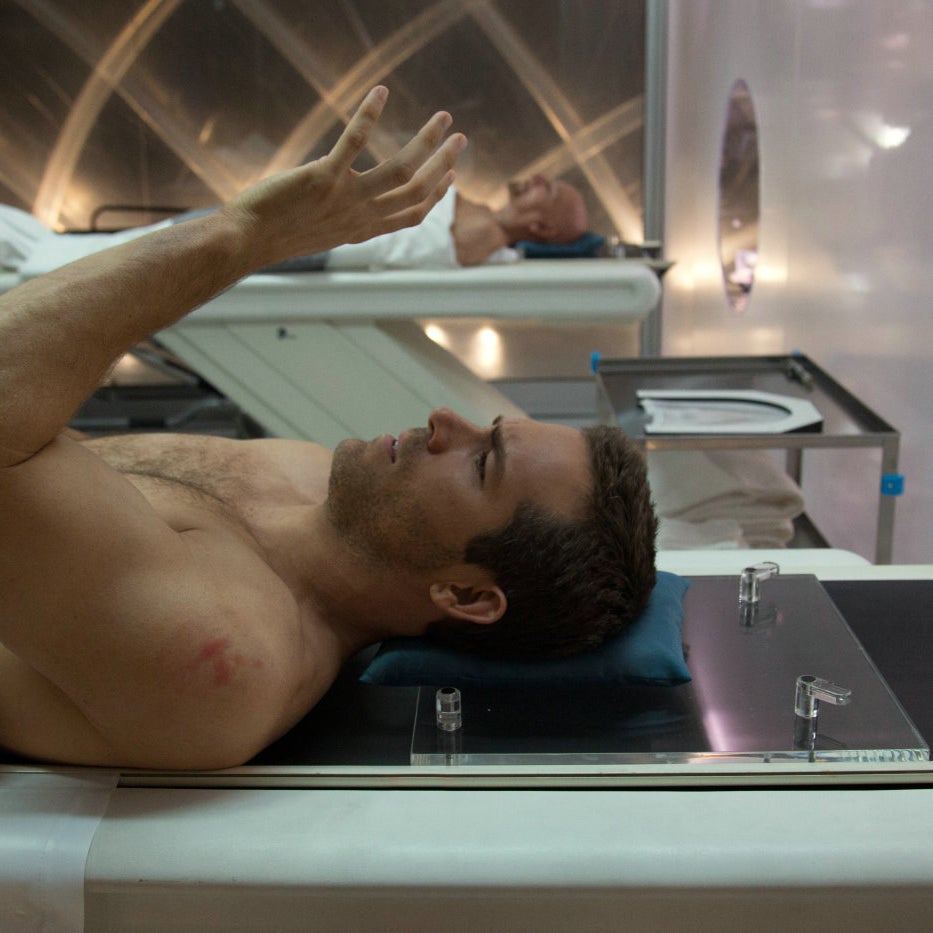
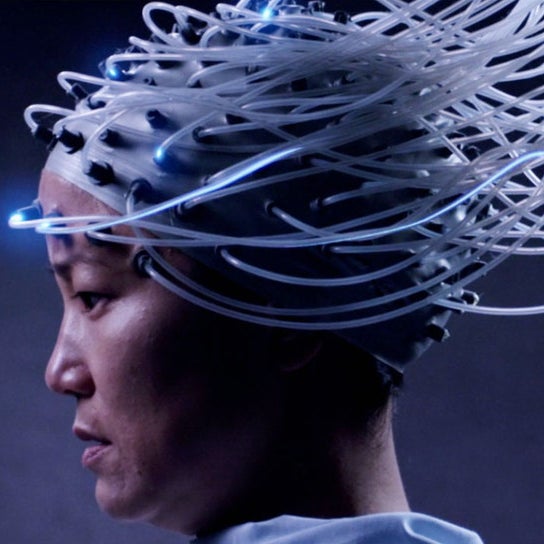
In one of those quirks of timing that has given us double asteroid disaster movies and two Truman Capote biopics in the same year, there's a pair of new sci-fi films that both happen to be about people who swap their old bodies for younger, more attractive ones. It's the kind of futuristic upgrade that, of course, ultimately comes at a terrible price. One of these films, Self/less, stars Ryan Reynolds and Matthew Goode, is directed by Tarsem Singh (whose Mirror Mirror was another twin film), and is opening in wide release this weekend. The other has already dipped in and out of theaters and found its way onto Netflix. But it's the latter, a smaller, more jagged work, that has the better ideas. Its main character is relatively small-time herself, someone who gets pushed into her fate rather than choosing it, someone who's grappling with a lot more than just the ethics of trading in your body for a newer model.
That indie is Advantageous, from director Jennifer Phang, who wrote the film with lead actor Jacqueline Kim (the cast also includes Ken Jeong, Jennifer Ehle, and James Urbaniak). While Self/less, which is scripted by brothers David and Àlex Pastor (Carriers), takes place in what seems to be a slightly tweaked present day, Advantageous is set in a near future in which the skyline is sleeker and the population more stressed by growing unemployment, worsening inequality, and terrorist attacks. Single mother Gwen Koh is maintaining a precarious grasp on the sunny professional life she's been living with her daughter Jules (Samantha Kim). When Gwen loses her job as the face of the Center for Advanced Health and Living, on whose behalf she delivers soothing messages about "alternatives to invasive cosmetic surgery" that are in reality far more extreme, Jules' future is put in jeopardy.
The fact that Advantageous is about an East Asian woman is more than just a welcome instance of diverse casting. The marginalization she's experienced reveals itself to be a thematic benefit of seismic proportions, especially when looked at in contrast with Self/less's Damian (played at first by Ben Kingsley, laboring with an Al Pacino–style New York accent). Damian is a real estate mogul with terminal cancer who lives in a gold-toned apartment high above Central Park. He's poised to leave behind a bunch of skyscrapers and an activist daughter (Michelle Dockery) from whom he's totally estranged, but when an enigmatic scientist named Albright (Matthew Goode) from a company called Phoenix Biogenic comes calling with an expensive, too-good-to-be-true treatment, Damian signs up because he's not ready to die yet. Soon, he finds himself starting over in New Orleans in a new body (Ryan Reynolds, who mysteriously but thankfully doesn't try to replicate Kingsley's accent).
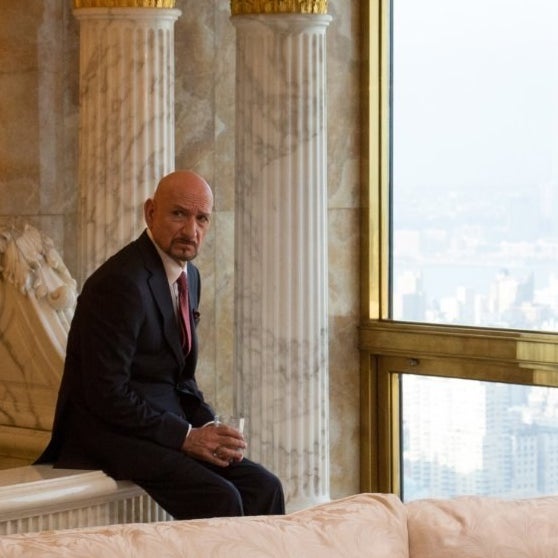
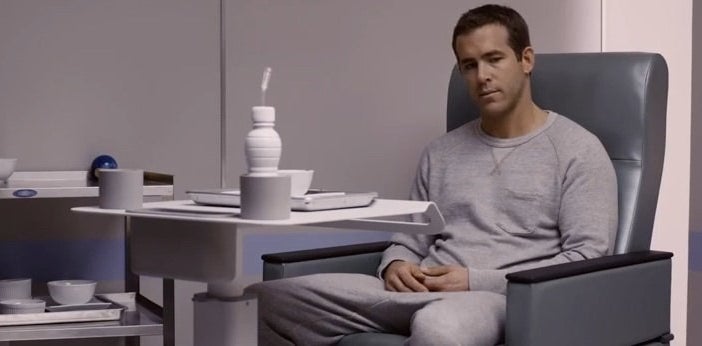
The highlight of Self/less is this jazzy window in which Damian reacquaints himself with carefree youth, playing pick-up basketball, entertaining a montage-worth of beautiful women in his bed, and trying not to think about whether that's all there is. It evokes Seconds, the woozily great John Frankenheimer movie from the '60s in which a restless banker makes a deal with a mysterious organization to leave his stodgy suburban married life behind in favor of a sexier new one, after some plastic surgery transforms him from John Randolph to Rock Hudson. But the joke, in Seconds, was on its midlife-crisis-striken main character, who slowly realized that the fresh start he thought he needed hadn't made him any happier, that his dissatisfactions were internal and had traveled with him.
But Self/less isn't interested in exploring those sorts of uncomfortable truths; instead it steers Damian toward a more expected one — that the body he's inhabiting wasn't, as he was told, grown in a vat. It belonged to a man with a family and a past, memories of which flicker to the surface whenever Damian goes off his meds. Damian starts investigating, and the movie slides into some rote action in part because it doesn't have anywhere else to go. Its main character bought himself more time because he could, because his existence as a wealthy, powerful dude was pretty good, the kind of thing you keep going when given the option. The movie needs Phoenix Biogenic to come after Damian because otherwise its only tension is in whether or not he'll deign to give back his extra life now that he knows where it came from.
While Damian gets a new body because he can, Advantageous's Gwen gets a new body because she has to, because her company's higher-ups decide they need to "go in a different direction." They use euphemisms about wanting to reach a "younger demographic" and needing someone "a touch more universal" to explain that she's too old and too ethnic. Hers is a world in which skyscrapers seem like glass fortresses wherein the rich are barricades, a world in which growing economic pressure enables all sorts of veiled biases — like the way its women are being asked to choose homemaking over employment, because with jobs growing scarce, that's "safer than putting millions of desperate men on the street."
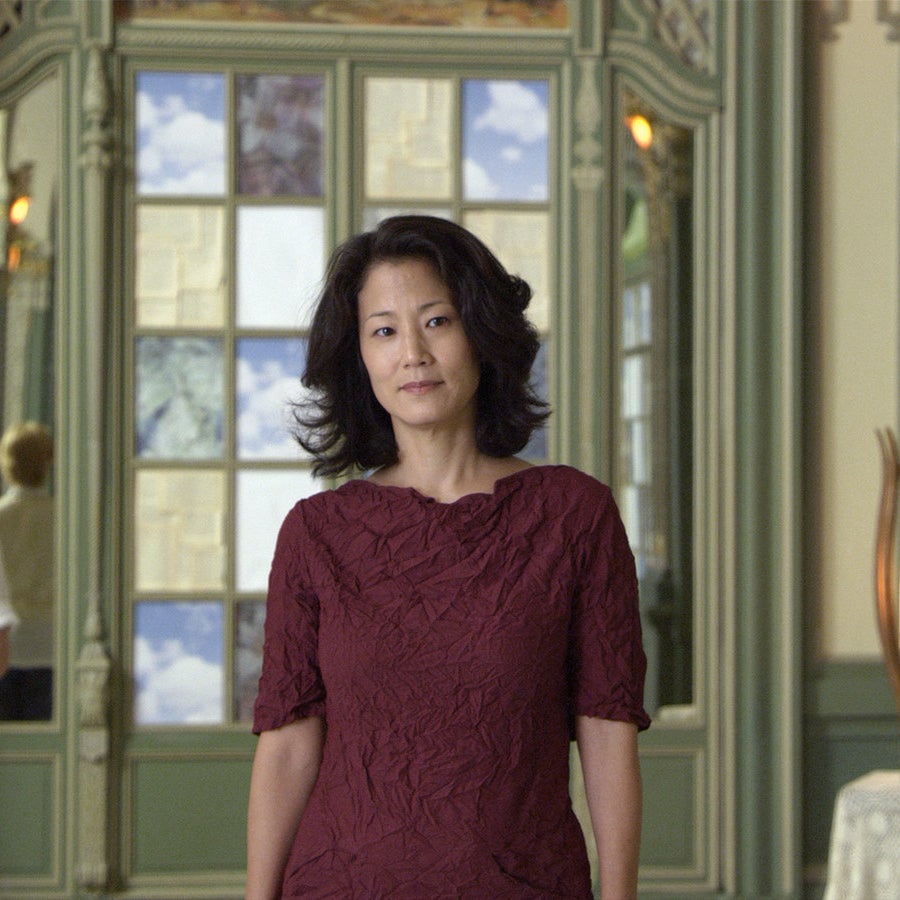
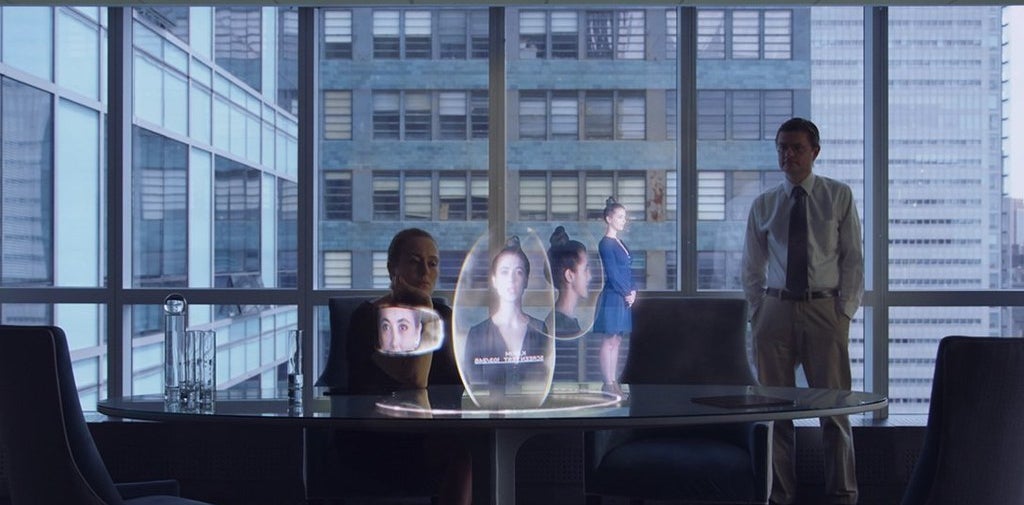
Gwen doesn't have a husband to ask for help from, and she's only just able to hold together the image of success that's as important to Jules' future status as any entrance exam. At a lunch with other prep school moms, Gwen is told she should send Jules to an exclusive camp in which she'll have the chance to bond with other elite offspring. That's some high-priced kiddie networking for someone barely in a position to pay her rent, but at the same time, its importance is clear: Everyone is scrambling for a few highly competitive spots in a shrinking upper class where, Gwen hopes, Jules will be spared the constant desperation with which her mother lives. Details like the homeless girl asleep in a planter suggest how wide the gap is between that and what's below.
The Faustian bargain in Self/less is enabled by privilege — its hero has to contend with having taken advantage of someone in dire straits, and unknowingly, to boot. It's no wonder that Advantageous has so much more to work with, when its version of that bargain involves an awful personal sacrifice as well as acknowledgement that its protagonist's own survival likely comes from her stepping on those rungs below her on the economic ladder. Gwen's attempts to assure Jules that she has value can't help but ring hollow when Gwen herself is allowing a marketing team to put her in a new, "better" body — a high-concept escalation of the idea of a mother who gives in to plastic surgery while telling her daughter she's beautiful just as she is.
Gwen literally becomes someone else in order to continue to support her family, and there's a quiet, complicated horror to that choice to which Self/less's surface-level treatment of potential immortality never comes close. There's also the added, biting level to Gwen's reworking of herself — in a film primary focused on Asian-American characters, Gwen 2.0 is played by Freya Adams, whose pretty, wide-eyed, ethnically ambiguous face feels like a casting director's idea of exotic and comfortingly unplaceable. In a reinforcement of the rarity of Advantageous's point of view, Gwen recasts herself as the type of person more likely to be the lead in a movie.
